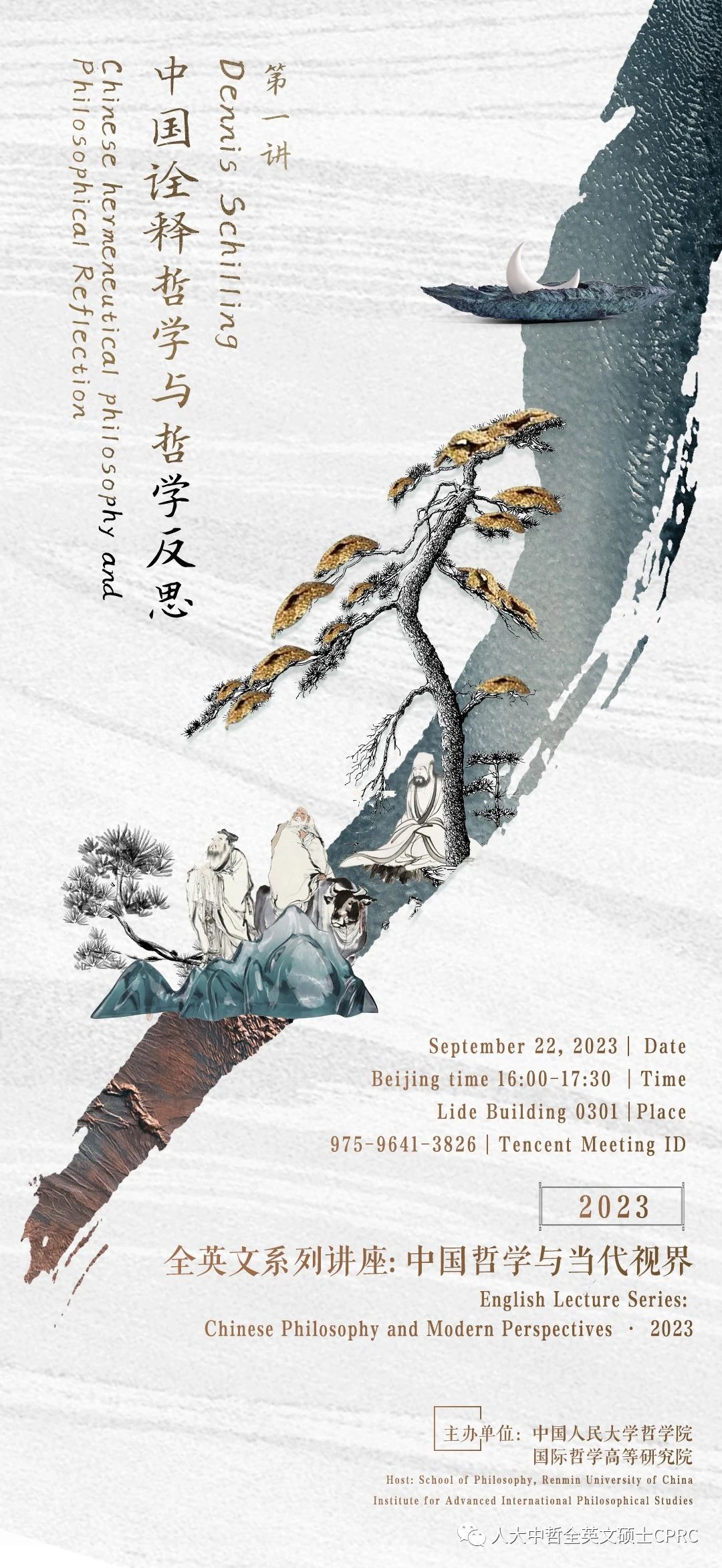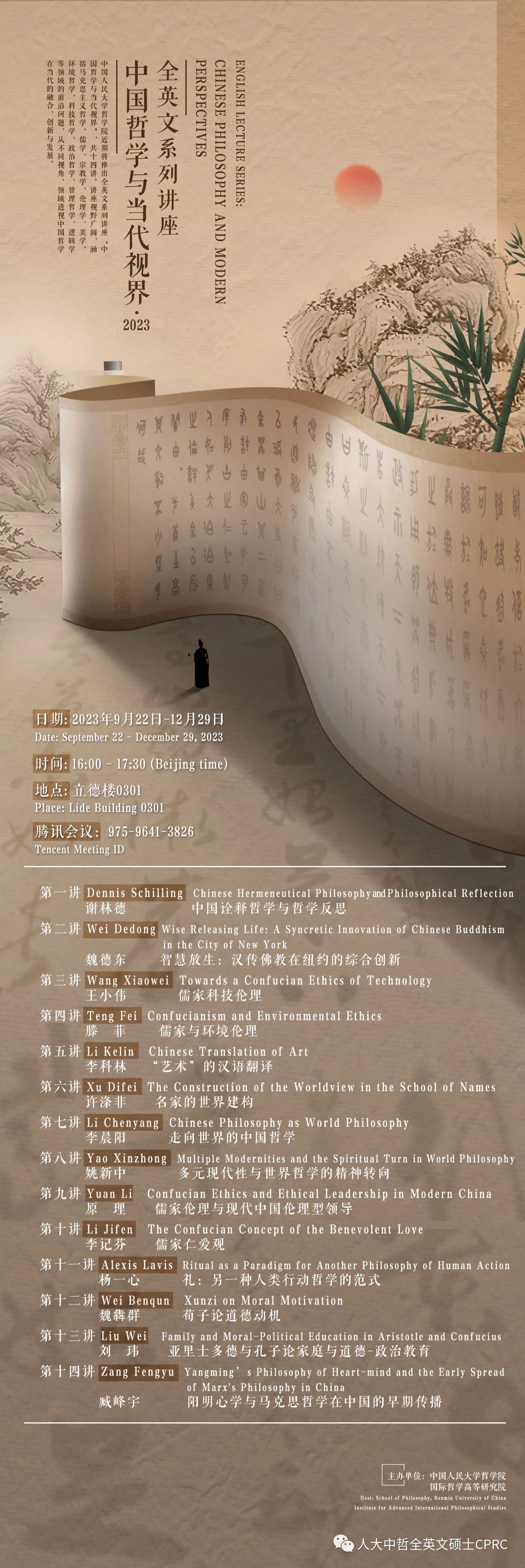预告|全英文系列讲座:中国哲学与当代视界|第一讲:中国诠释哲学与哲学反思
日期:2023-09-21第一讲:中国诠释哲学与哲学反思
Lecture One:Chinese Hermeneutical Philosophy and Philosophy Reflection
Speaker主讲人:Dennis Schilling 谢林德

Date 日期:09.22, 2023, Friday 周五
Time 时间:16:00-17:30
Place 地点:Lide Building 0301 立德楼0301
Tencent meeting ID腾讯会议:975-9641-3826
About the speaker:
Dennis Schilling, born in Germany, and received his Doctor degree and his habilitation at the University of Munich (LMU). Previously, he held positions at the University of Munich and Marburg in Germany and at Kainan University (Taoyuan) and National Chengchi University (Taipei) in Taiwan. Since 2016, he does research and supervises PhD and Master thesis at the research seminar on Chinese Philosophy of the School of Philosophy of Renmin University of China in Beijing and gives courses and lectures on Chinese Metaphysics, Philosophical Anthropology, Daoist philosophy and Yì jīng studies. His interests include Chinese philosophy, comparative ethics, sinology and history of ideas.
Abstract:
In the present lecture, I try to look on Chinese philosophy as a ‘philosophy of interpretation.’ That means, first, that interpretation itself is an essential subject of philosophical thinking – and not only a method of acquiring and gaining knowledge about other subjects –, and, second, that Chinese philosophy provides specific reflections and methods of interpretation and developed distinct types of hermeneutics worth to be considered in detail.
Already in early times, we can see how philosophical thinking emerges with re-interpreting common ideas, norms and values whereby reshaping the horizon of value and understanding. In the first part of the lecture, I will give an overview over the practice of interpretation in pre Qín philosophical texts, before in Hàn dynasty the ‘Study of Canons’ (jīng xué, 經學) formed Chinese hermeneutics as a textual exegetics. Since ‘interpretation’ is not a simple procedure, but depends on various distinct tasks – e.g. clarifying of misconceptions, re-defining meaning, and its contextual adaption –, we can see, how particular hermeneutic philosophy may focus on different aspects of interpreting and understanding. Accordingly, in the second part, I will introduce three different types of a philosophy of interpretation based on the principles of negation (Zhuāng zǐ’s ‘forgetting’), abstraction (Wáng Bì), and imitation (Yáng Xióng, Zhū Xī). The third part of the lecture highlights some features of Chinese hermeneutics in its historical development and social and intellectual settings with a focus on the encountering of Chinese hermeneutics with Indian and European philosophy in the Middle Ages and in the early 20th century.

Host:
School of Philosophy, Renmin University of China,
Institute for Advanced International Philosophical Studies
主办单位:
中国人民大学哲学院、国际哲学高等研究院


